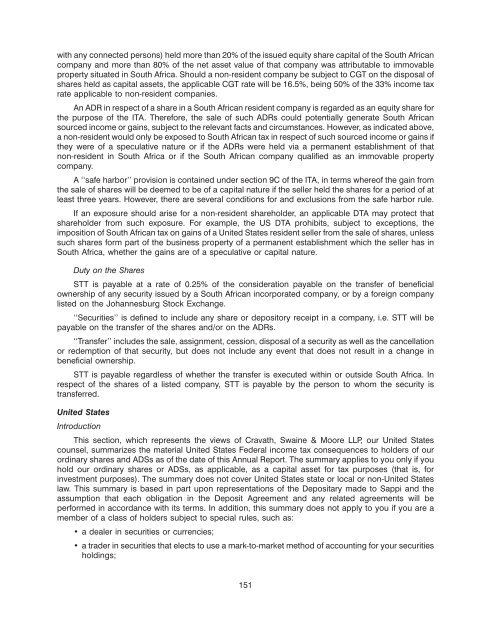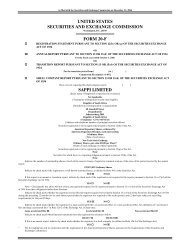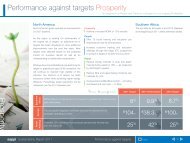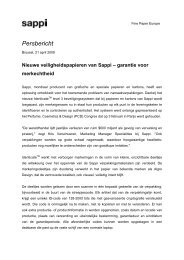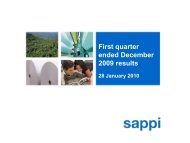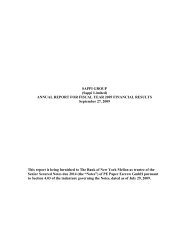You also want an ePaper? Increase the reach of your titles
YUMPU automatically turns print PDFs into web optimized ePapers that Google loves.
with any connected persons) held more than 20% of the issued equity share capital of the South African<br />
company and more than 80% of the net asset value of that company was attributable to immovable<br />
property situated in South Africa. Should a non-resident company be subject to CGT on the disposal of<br />
shares held as capital assets, the applicable CGT rate will be 16.5%, being 50% of the 33% income tax<br />
rate applicable to non-resident companies.<br />
An ADR in respect of a share in a South African resident company is regarded as an equity share for<br />
the purpose of the ITA. Therefore, the sale of such ADRs could potentially generate South African<br />
sourced income or gains, subject to the relevant facts and circumstances. However, as indicated above,<br />
a non-resident would only be exposed to South African tax in respect of such sourced income or gains if<br />
they were of a speculative nature or if the ADRs were held via a permanent establishment of that<br />
non-resident in South Africa or if the South African company qualified as an immovable property<br />
company.<br />
A ‘‘safe harbor’’ provision is contained under section 9C of the ITA, in terms whereof the gain from<br />
the sale of shares will be deemed to be of a capital nature if the seller held the shares for a period of at<br />
least three years. However, there are several conditions for and exclusions from the safe harbor rule.<br />
If an exposure should arise for a non-resident shareholder, an applicable DTA may protect that<br />
shareholder from such exposure. For example, the US DTA prohibits, subject to exceptions, the<br />
imposition of South African tax on gains of a United States resident seller from the sale of shares, unless<br />
such shares form part of the business property of a permanent establishment which the seller has in<br />
South Africa, whether the gains are of a speculative or capital nature.<br />
Duty on the Shares<br />
STT is payable at a rate of 0.25% of the consideration payable on the transfer of beneficial<br />
ownership of any security issued by a South African incorporated company, or by a foreign company<br />
listed on the Johannesburg Stock Exchange.<br />
‘‘Securities’’ is defined to include any share or depository receipt in a company, i.e. STT will be<br />
payable on the transfer of the shares and/or on the ADRs.<br />
‘‘Transfer’’ includes the sale, assignment, cession, disposal of a security as well as the cancellation<br />
or redemption of that security, but does not include any event that does not result in a change in<br />
beneficial ownership.<br />
STT is payable regardless of whether the transfer is executed within or outside South Africa. In<br />
respect of the shares of a listed company, STT is payable by the person to whom the security is<br />
transferred.<br />
United States<br />
Introduction<br />
This section, which represents the views of Cravath, Swaine & Moore LLP, our United States<br />
counsel, summarizes the material United States Federal income tax consequences to holders of our<br />
ordinary shares and ADSs as of the date of this Annual Report. The summary applies to you only if you<br />
hold our ordinary shares or ADSs, as applicable, as a capital asset for tax purposes (that is, for<br />
investment purposes). The summary does not cover United States state or local or non-United States<br />
law. This summary is based in part upon representations of the Depositary made to Sappi and the<br />
assumption that each obligation in the Deposit Agreement and any related agreements will be<br />
performed in accordance with its terms. In addition, this summary does not apply to you if you are a<br />
member of a class of holders subject to special rules, such as:<br />
a dealer in securities or currencies;<br />
a trader in securities that elects to use a mark-to-market method of accounting for your securities<br />
holdings;<br />
151


